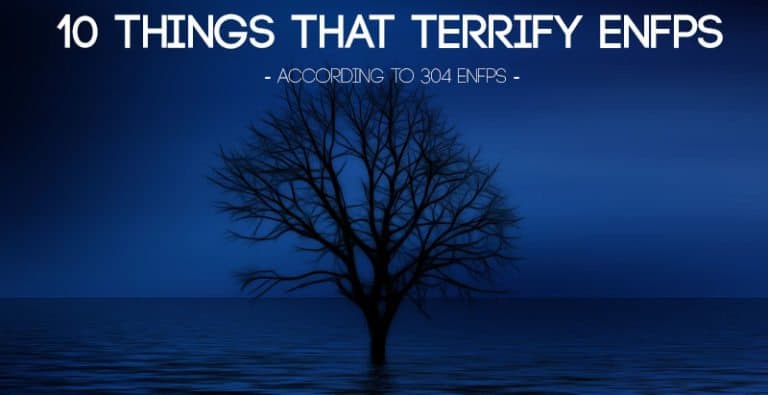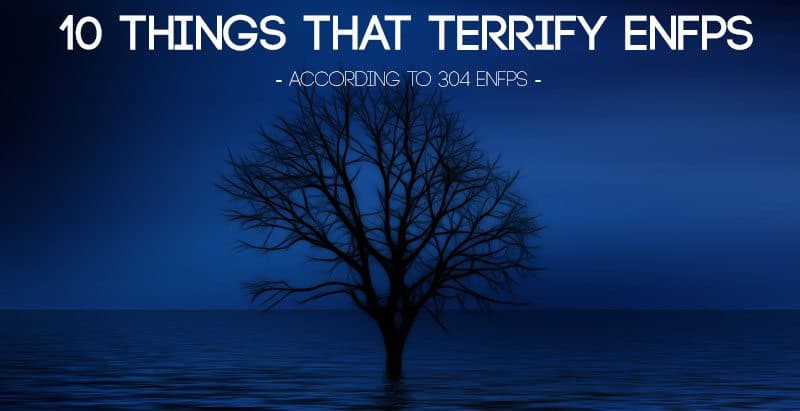Here’s How You Are Misunderstood, Based on Your Personality Type
Updated April 17, 2021
Everyone feels misunderstood sometimes, and it’s not always something that can be predicted by personality type. The environment you are born in, the parents who raised you, or the school you attended can all play a part in how misunderstood or accepted you are. But there are certain personality behaviors and ways of thinking that tend to be misunderstood regularly. Let’s take a look at how each personality type tends to be misunderstood and why!

Not sure what your personality type is? Take our new personality questionnaire here. Or you can take the official MBTI® here.
Table of contents
Estimated reading time: 16 minutes
Here’s How You’re Misunderstood, Based On Your Personality Type
ISTJ
ISTJs tend to be misunderstood by people who pass them off as aloof, overly conventional, cold, or nit-picky. Very few people see the inner depths and spirit of the ISTJ because they don’t take the time or put in the effort. However, if you were to look deeper you’d see that they are extremely loyal, honest, and even funny. Their “nit-pickiness” is a result of their intense eye for detail. They are far from cold, in fact, they feel very deeply for their loved ones and would go to any lengths to protect them. That’s one of the reasons that they are security-conscious and like to have a contingency plan for everything. ISTJs appreciate traditions they know and love, but (if they’re mature) they aren’t tied to their traditions if a better option presents itself. If you have a problem with a tradition, so long as you have a practical, logical argument, they’ll listen to you with an open mind.
ISFJ
ISFJs tend to be misunderstood as being overly-anxious and conventional. While most ISFJs long for security in their lives, once they feel like they have that security they can relax and be their natural creative selves. ISFJs can vary in terms of how conventional they are. Some are drawn to tradition and repeating experiences and rituals they know and trust, others are drawn to a less-conventional lifestyle, believing that traditions and rules can’t be trusted. They may adhere to staying away from tradition as much as some ISFJs adhere to traditions. These ISFJs can actually seem very edgy and unconventional. ISFJs do long for stability in their lives and can struggle with sudden changes, but that’s because they are specialists. They excel when they repeat and practice things, and they thrive in cultures and environments that they understand thoroughly.
ESTJ
ESTJs tend to be bad-mouthed for being bossy, overly-conventional, and nit-picky. While immature ESTJs can certainly be this way, healthy ESTJs are actually quite open to new ideas and concepts, especially once they hit mid-life and beyond (and especially if you have a practical reason for applying a new idea or concept). The reason ESTJs appear bossy is because they are wired to notice flaws and errors in their environment. Inefficiency sticks out to them like a sore thumb and it’s nearly impossible for them to ignore a flaw in the system. If they don’t, it irritates them like an itch they can’t scratch. ESTJs believe in organizing their environment effectively for the good of the people they care about. You could say that organizing is one of their love languages. As far as being nit-picky, ESTJs are extremely detail-oriented and, as I said before, they are wired to see flaws. This can make them seem nit-picky to other types who aren’t wired that way, but it also means that they are good at fixing things, making systems run more smoothly, and creating a productive, more organized environment.
ESFJ
ESFJs tend to be naturally gregarious, sympathetic, and industrious. However, their interest in people and their desire to understand them can seem overbearing and meddling to other types who are more reserved. They can feel like something about the ESFJ’s curious, friendly nature is phony or insincere. If they were to look deeper they’d see that ESFJs don’t just pretend to care (unless they have immature type development), they actually do care. And when they care they show it; they smile, they laugh, they ask questions, they notice the little details that are important to you. This may seem prying to more reserved types, but it’s their way of telling people, “I notice you, I’m here for you, and I want to understand you.” Their detail-oriented nature and eye for social customs makes them conscious of what you need, how they present themselves, and what the group desires as a whole. There’s nothing phony or pretentious about it, it’s just the way they understand and respond to the world around them.
Related: Are ESFJs and ENFJs “Fake”?
ISTP
ISTPs are often misunderstood as being cold, aloof, and/or lazy. But what people don’t often realize or give them credit for is their hyper-fast thinking and realistic resourcefulness. They are some of the first responders in a crisis and, contrary to the “cold, unfeeling” stereotypes, they are deeply dedicated to their loved ones. “You love me? Then tell me the truth!” that’s how ISTPs think, so they are often unfairly seen as cold because of their direct, honest nature.
As far as the laziness misconception is concerned, this usually is related to their perceiving preference. As perceivers, ISTPs tend to mix work with play and then get a burst of energy as the deadline approaches and cram to finish. They get just as much done as judging types do but in a different order. This actually allows for more creativity and gives them the chance to simmer on an idea or project to find creative ways to make it better.
Related: Understanding ISTP “Laziness”
ISFP
ISFPs are often seen as the overly-emotional, emo hippies of the type community. Most of this is related to poor type descriptions and stereotypes that paint them all as deeply-sensitive artists who are impossible to not offend. But let’s take a closer look. ISFPs are actually very private about their emotions and believe in authenticity and defining for themselves what is important and worth believing. They actually hate crying in front of people most of the time, and are more guarded about their emotions than many. Some ISFPs are artists, yet statistically speaking, ISFPs are over-represented in health care, business, and law enforcement fields. This is due to their ability to think quickly and realistically in a crisis. They may be feeling types, but they’re also tough, grounded in reality, and practical. They’re hardly the types to shirk away from danger or cry over a broken nail. They’re too realistic to get upset over things that are to be expected in daily life.
ESTP
ESTPs are often seen as being overly-impulsive, undependable, and thrill-seeking. While this may be true of poorly developed ESTPs, healthy ESTPs match their impulsiveness with an intense practical knowledge of the world around them. They use introverted thinking to consider their choices and how they fit into the framework of their principles and what makes sense. They are impulsive, but this helps them in crisis situations when someone is needed who can react quickly and effectively without wasting time. ESTPs are drawn to pleasurable and thrilling experiences, but they are also the ultimate realists. If something’s just plain stupid they won’t waste their time with it. They’re not going to follow the crowd off the edge of a cliff.
When it comes to loyalty and dependability, ESTPs actually take this more seriously than most. When ESTPs love someone and commit themselves to that person, there’s literally nothing that they wouldn’t do to protect them. They are deeply loyal once they make a commitment, but because they take their commitments so seriously they don’t make them until they are 100% sure it’s the right decision for them.
ESFP
ESFPs tend to be misunderstood as being attention-seeking, shallow, or lazy. While these traits can be true of poorly-developed ESFPs, average or healthy ESFPs aren’t like this at all. They care deeply about people and want to show them positive experiences and enjoyments. They are mentally wired to make the most of the moment, to be resourceful, and enjoy the simple pleasures in life. Because of this, ESFPs thrive when they make people laugh, smile, or experience something new and exciting. They may not be the first to sit around debating the words of old philosophers, but this certainly doesn’t make them shallow. It just means that they pay more attention to what’s happening now and what’s needed now than what happened a long time ago or what some concept means that has no realistic application in the moment. ESFPs often enjoy deep conversations about people and psychology. They enjoy understanding what makes people “tick”, but trust must be established first before they open up to people about their deeper emotions and feelings.
As far as being lazy, this seems to be a misconception about all perceiving types. ESFPs work in bursts of energy and take their time to think creatively before finishing a project. They like to mix work and play and then sprint to a finish as a deadline closes in. Well-developed perceivers get as much done as judging types do, but in a different order.
INTJ
INTJs are often misunderstood simply because there are so few of them around. Making up only 2.1% of the US population, they understand the world in a fundamentally different way than most other types. While the rest of the world looks first to tangible data, INTJs follow symbols and underlying meanings first. Others tend to be skeptical of their insights, asking questions like, “What concrete facts do you have to back up this idea?” “What tangible evidence do you have that this is going to happen?”
Thankfully, INTJs have an auxiliary thinking process that adds strategic wisdom and factual clarity to their insights over time. But they usually have to speak to people through their thinking preference, which is their second-most preferred function, rather than their intuition, which is their most preferred mental process. This can be frustrating for them and exhausting in the long run.
Another misunderstanding about INTJs is that they are cold or unfeeling. In the type community, they are often described as robotic. What people don’t realize is that INTJs actually have very deep, private emotional richness, but they don’t share it with strangers. They utilize a process called Introverted Feeling which is focused on refining an inner set of values and understanding what’s important on a subjective, ethical level. While INTJs may not be especially effusive and gushy (in fact, they tend to be annoyed by gushiness), this in no way means they don’t care about people. Their stoic outer appearance often hides a very devoted, caring inner nature.
Related: 10 Things That Terrify INTJs
INFJ
INFJs, like INTJs, are often misunderstood simply because they are so few in number. Making up a mere 1.5% of the US population, INFJs see the world in a different way than most other types do. While most people trust in concrete, tangible data, INFJs trust symbols, insights, and connections that seem to appear out of nowhere. An INFJ might suddenly have an “aha!” moment of realization and not be able to describe why or where it came from. The rest of the world is skeptical of this. They want details and a linear explanation for everything. But the INFJ mind doesn’t come to things linearly. Their mind mulls over random bits of data and symbols and meanings until, inexplicably, they reach a conclusion before they’ve figured out how they got there. It’s only with time and patience that they understand and organize how they reached that conclusion. Many INFJs report that their insights have been ignored or mocked only for people to realize their mistake much later when what they predicted did actually happen.
Related: 24 Signs You’re an INFJ, the Mystic Personality Type
ENTJ
ENTJs are often misunderstood as being ruthless, bossy, and/or egotistical. While poorly developed ENTJs can be this way, average or healthy ENTJs are able to balance their ambition with an open-minded interest in the world around them, including the people around them. They balance directing with learning. As dominant extraverted thinking types, ENTJs are mentally wired to see flaws and inefficient processes and correct them. This is a strength and a valuable asset in a team, but it can appear bossy or overly critical. However, if we pause to understand, we can see that the ENTJ’s motives aren’t dictatorial. Many times ENTJs want to fix things for the people they love and care about. They want to fix systems and streamline them for the people on their team. In turn, they appreciate it when other people can point out things that they need to fix. They don’t see this as being a personal attack. It’s helpful! So if we take the time to understand their mindset, a lot of these misunderstandings can go away.
ENFJ
ENFJs can sometimes be misunderstood as meddling, overbearing, or “overly happy” (seriously…apparently being “too happy” is a bad thing). Because ENFJs are so driven to understand people, they tend to ask a lot of questions and pursue open, transparent communication. The give-and-take of emotional support is one of the ways that they show they care. However, other types can be put off by their curiosity and interest. They can see the ENFJs interactions as being too intrusive for their comfort. ENFJs are usually in tune with other people’s comfort levels and will back off if they feel that they’ve overstepped, but sometimes people will go along with the conversation only to judge them later.
As far as being “too happy” or bubbly, ENFJs enjoy creating atmospheres of harmony. They dislike conflict and try to keep the mood positive and meet the emotional needs of the people around them. Still, even ENFJs aren’t immune to bad days. Sometimes the pressure of being the harmonize in relationships gets tiring even for them. They enjoy it when people take the time to really ask them how they’re doing, and when they’re allowed to be unhappy or express their sadness without feeling like they’re bringing other people down.
Related: 10 Things You’ll Relate to If You’re an ENFJ
INTP
INTPs are often called “absent-minded professors” or seen as robotic, unfeeling, or even lazy. Much of the world doesn’t see or understand the way INTPs do things or how they process information. Because INTPs are dominant thinking types, they are wired to notice flaws and inaccuracies in the things people say. When they point out these errors they are often met with frustration or hurt feelings. But the INTP is so inherently driven by accuracy that they may not realize that their words were hurtful. They simply think they’re telling the truth, and who wouldn’t want to know that after all?
Because INTPs are perceiving types they tend to work in bursts of energy rather than in a sustained, steady stream. They like to mix one project with a series of little side-projects that come up along the way. Because of this, their rooms are often filled with half-finished projects, notes of ideas, and books left open on shelves. But usually when a deadline approaches INTPs know how to sprint to the finish line and hand in their work on time. So while others might see them as distractible or lazy, they are still accomplishing just as much, but in a different order, as other types.
Related: 3 Weird and Wonderful Secrets About the INTP
INFP
INFPs are often seen as being unrealistic or overly sensitive. While they are definitely imaginative and sensitive most of the time, I would hesitate to say they are overly so. INFPs, by their very nature, are driven by a core desire to bring their imaginative ideas into reality. The healthier and more developed they become the more likely they are to make major improvements in the world around them. But because they don’t work in the same manner that many other types do, they are often underestimated. As perceiving types and intuitives, they don’t come up with a concrete idea and plan out a step-by-step way to get there. They tend to come up with a big idea, along with many alternative ideas, and work in bursts of energy and creative inspiration until they reach the finish line. This can take some time, and their method can seem confusing to people who are used to working towards something in a more sequential way. Their big ideas can also seem unrealistic to people who believe that everything needs to be done “by the book” or the way things have always been done.
As far as being overly sensitive, this can be a weakness for some INFPs, but not all. They care passionately for their beliefs and causes, and they can be sensitive to criticisms that aren’t handed out tactfully. However, they are also drawn to honesty and authenticity, so they try hard to not get offended by things that are constructive. And if anyone confuses their sensitivity for weakness, I always try to remind them that Joan of Arc was an INFP, and she certainly wasn’t weak!
Related: 3 Weird and Wonderful Secrets of the INFP Personality Type
ENTP
ENTPs tend to be misunderstood as being overly-argumentative or lazy. This is thanks to their ability to see things from 1000 different angles and their simultaneous desire for absolute accuracy. If they spot inaccuracy, bias, or inconsistency they’ll not hesitate to point it out or argue a different, more logical perspective. They thoroughly enjoy this process and don’t see it as being mean-spirited. ENTPs enjoy debate and see it as a friendly exploration of what’s true and what’s false. They enjoy the process of mentally sparring with others until the final truth can be revealed.
As far as being lazy, this is a misunderstanding that many perceiving types deal with. ENTPs have a unique work process and it tends to confuse judging types who work in a steady, methodical stream of energy. ENTPs, in contrast, work towards a goal, find related side goals and more related ideas, and multi-task through all of them at once in random bursts of energy. They like to mix work with play and then sprint towards a finish line at the very last minute. This gives them time to let intuitive insights and creativity emerge while they work, instead of rushing through the process.
ENFP
ENFPs tend to be misunderstood as being flirtatious, unrealistic, or disorganized. Their enthusiasm and energy can seem inviting to other people and they can mistake their charisma for flirting even if that was the last thing in the world the ENFP wanted to convey.
Because ENFPs are so driven by imagination, they come up with a plethora of unusual and novel ideas. Many more traditional types can see them as being unrealistic or too idealistic. They may try to put the brakes on the ENFP’s brainstorming, but instead of deterring the ENFP, this often motivates them more. They want to break boundaries and make the impossible happen!
As far as being disorganized, this can sometimes be true of ENFPs, but it also can be a misunderstanding of their process. ENFPs tend to come up with a big idea they are passionate about, along with twenty other side ideas they are also excited about. They work on everything together in creative “bursts” of energy. As they approach the deadline they develop a sudden surge of creative energy and push to finish their project on time. They get as much work done as a judging type, but they do it in a completely different order that allows for creative innovation and refining.
Related: Here’s Your Secret Strength, Based On Your Personality Type
What Do You Think?
Have you ever felt misunderstood because of your personality type? Share your thoughts with us in the comments!
Find out more about your personality type in our eBooks, Discovering You: Unlocking the Power of Personality Type, The INFJ – Understanding the Mystic, and The INFP – Understanding the Dreamer. You can also connect with me via Facebook, Instagram, or Twitter!

This article contains affiliate links.














Love reading these article. In fact, even most of the people did’nt tell about myself but I, really know who mostly misunderstood of how I acted everytime I am with their company. But nothing hurt I feel, I really understand how they interpreted myself. As long as it is not me the person who they actually judge.
I don’t agree with the INTJ post on here. INTJs are very much factually oriented people. Especially given that I happen to be one. I wouldn’t even consider someone else’s opinion unless I knew it to be fact.
Have you read Carl Jung’s definition of psychological types? That’s where the MBTI comes from. ISTJs are oriented by facts. Introverted Intuition, which INTJs use, is very different. But most people who type as INTJ are ISTJs so it’s a problem with inaccurate tests and information about type. As Te-Aux users, INTJs appreciate empirical truths and facts, but that’s not where their insights and predictions come from. Those come from intuition first.
As a hard INTJ, I support the view of Susan. Thank you very much for this great article!
I’m an INFP-T and fit your descriptions almost perfectly. People often misunderstood my working methods and most underestimate me at first. The clever half of people around me would catch up pretty quickly and respect me, but the other half would get frustrated with my perfectionist side while the others assumed I got good positions/salary or that my bosses always give me special treatments/bonuses because of things other than my work capabilities. It hurts my feelings…that is why I never like to be an employee. I’d rather have my own small business and being poor than working for others, have good payment with a bunch of backstabbing people constantly bad mouthing me… But INFPs aren’t weak indeed, I survived many, many tragedies in my life…depressions, losing a child, severe illnesses, losing both ovaries, betrayals by loved ones, divorce, bankruptcy, etc, I’m still here LoL…what doesn’t kill me make me stronger.
Thanks so much for your input Lydia! It’s so helpful to hear your perspective. And INFPs are DEFINITELY not weak, like you said! I’m sorry you’ve had to live with those hardships, and I applaud you for being the strong person you are today. Thank you again.
Really agree for the intp part!
Thanks!
ISTP is accurate. I had an INNFP sister who seemed to think that I didn’t feel very deeply. We all feel. We just show it in different ways.
100% spot on. It seems like pretty much everyone hates a debate. And since I’m the only one of me in my life, I’m constantly being told (angrily), “Not everything has to be debate – can’t you just say something nice and be agreeable”, “You just want to be right all the time”, “You always have to have the last word, don’t you?”, “Why do you always have to question, why can’t you just accept things as they are?”, “You’re a lazy slob” and “Shut up, you’re obnoxious”.
So, basically I stifle my personality as best as I can, but… the pesky truth keeps on coming out, making my interactions with my entire (xxFx, xSxx, xSFx and xxxJ) family nothing but stressful and unpleasant. I really don’t know what to do about it.
I love a good debate or hypothesis too, but there’s really nobody in my group of friends who is up for it either. My best solution so far has been topic-specific groups on social media. Religion, philosophy, ancient history, ethics, current events, social sciences, the history of words, conspiracy theories, mythologies – there’s literally a grpup for everything if you look in the right places.
I understand you PERFECTLY, man, can you just imagine what is like to have an unhealthy ISFJ mom? I hear this kind of thing all the time and a bit more like “You can’t question why, I’m your mother and your parent’s words must be the end of the talking”, when I hear it, my wish is to explode like a star, but I started to just shut up and let the things go with it’s own course, isn’t always easy, but always is what give me the best outcome.
Alex, I am an ENFP with an ENTx family member (Perceiving or Judging depends on the day). It doesn’t matter how much or how little I’ve studied out any of this (Amazing!!) stuff, I’ll (probably) always consider myself a beginner with an opinion.
I agree with you *and* your family. I hate any arguments with him as it generally stresses one or both of us out, or he’s just trying to annoy/tease me. In consideration towards the *inserts correct title for ‘thinking’ types* (See? Beginner. Haha!), I’ve decidedly gotten better at not taking everything so personally. I’ve become more careful with my response, but I’m still learning, still attempting to control how I communicate. I truly believe everyone has to meet up somewhere in the middle. Speak the truth, but do it out of love and respect towards them – *in a way that they can see and acknowledge that.* I’m not attempting to imply that you don’t, just a few pointers whether already done or not. (Anyway. ;p) Speak kindly and with consideration towards their feelings. And for them… tell them to make the effort to remove themselves from the situation and look at it truthfully. Ask them to remove their emotions from the equation without discounting the fact that they’re there – make it clear that emotions are valid, but shouldn’t be in control.
Basically: They buck up, you … “calm down” (in their perspective.)
Also… everyone gets mad at everyone for something. ENTPs are “disagreeable and argumentative” (I do understand that the typical ENTP enjoys a good debate. I do too, as long as emotions aren’t involved), ENFPs are overly emotional, ENFJs are too compassionate and understanding (Which…isn’t a bad thing), etc. We’re all accused of something often.
If they still don’t listen/find you agreeable/etc. Just…. tell them that a complete stranger is telling them to BUCK UP. (And the stranger is an ENFP! Seriously….)
I love a good debate or hypothesis too, but there’s really nobody in my group of friends who is up for it either. My best solution so far has been topic-specific groups on social media. Religion, philosophy, ancient history, ethics, current events, social sciences, the history of words, conspiracy theories, mythologies – there’s literally a grpup for everything if you look in the right places.
I’m an female ENTP, perfect article, but in my case, when I get inspired, the first thing I do is a veeeery detailed plan, I use all the energy for this, a methodical detailed plan, so after I can accomplish it (almost never till the end), but I forget about all the details xD
Thank you for a nice concise article. Understanding how we relate to one another and our circumstance can go a long way to avoiding misunderstandings. Some of us (me especially) should come with a handout – Read before Use…
Thank you Tony! I’m really glad you enjoyed it! Wouldn’t it be nice if everyone came with a manual of some kind?
✨🙏🏾✨I wonder if there’s something or somewhere that I can tap into to help me better understand how when communicating about myself; I can do so more effectively????
While I can be considered to be a decent & true advocate for others; when it comes to my personal needs e.g. autonomy, & injustice; I’m clearly falling short.
I’m not being received as sincere when there’s nothing further from the truth & actuality of whatever it is I’m communicating.
It sucks because I really need help! 😔
*Oops!! INFJ
“When the advocate Needs an Advocate”